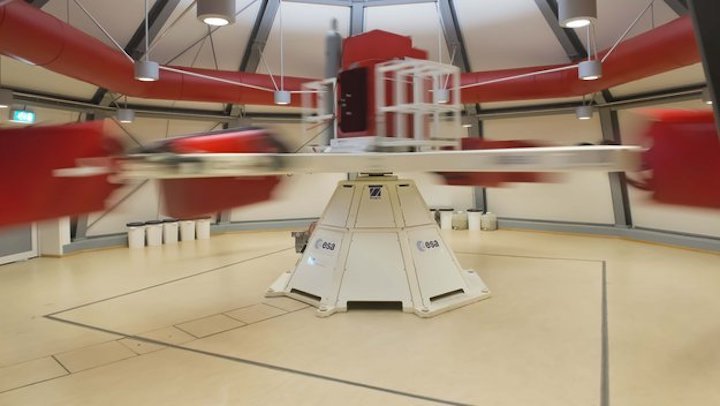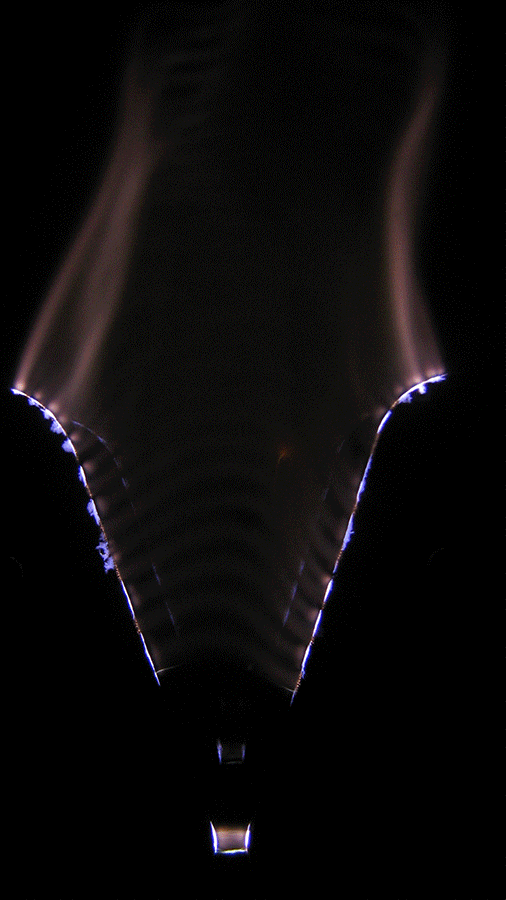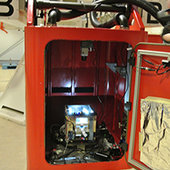6.09.2019

UN OFFERS USE OF ESA’S HYPERGRAVITY CENTRIFUGE TO RESEARCHERS WORLDWIDE
Imagine being able to increase the force of gravity simply by turning a dial. A United Nations fellowship is offering this opportunity to researchers all over the world, through access to ESA’s hypergravity-generating Large Diameter Centrifuge.
Manipulate gravity and a lot of other factors shift too: bubbles in liquid alter their behaviour, convection currents accelerate and metal alloys form in unprecedented ways. Electrical plasmas alter and test animals lose fat – even fire burns differently.
For more than a decade ESA’s Large Diameter Centrifuge (LDC) at its ESTEC technical centre in the Netherlands has been a place of pilgrimage for European gravity researchers, including student experimenters on regular Spin Your Thesis! campaigns.
The LDC is popular with life and physical science teams, as well as for commercial experiments. Internal ESA teams use the centrifuge to see how spacecraft materials and components would respond to the violent accelerations involved in launching into space.
Now the United Nations Office for Outer Space Affairs (UNOOSA) is widening access to the LDC still further, as part of its ‘Access to Space for All’ initiative. This fellowship programme aims to provide opportunities to research teams including student members, with particular attention paid to developing nations.
Jack van Loon of the centrifuge team comments: “Over the years we have seen an increasing interest in the application of hypergravity for life and physical sciences as well as for spaceflight payloads and materials within Europe.
“This activity caught the attention of UNOOSA resulting in this unique, first time collaboration between ESA and the United Nations.”
Operating within a sci-fi style white dome, the LDC is an 8-m diameter four-arm centrifuge that gives researchers access to a range of hypergravity up to 20 times Earth gravity for weeks or months at a time.
At its fastest, the centrifuge rotates at up to 67 revs per minute, with its six gondolas placed at different points along its arms weighing in at 130 kg, and each capable of accommodating 80 kg of payload.
This new programme is formally known as the ‘United Nations / European Space Agency Fellowship Programme on the Large Diameter Centrifuge Hypergravity Experiment Series’, or HyperGES for short.
To be eligible to apply, research teams should consist of one academic supervisor and several Bachelor, Masters and/or PhD students, with the proposed experiment being integral part of the students’ syllabuses or research. For full details go here.
Quelle: ESA


